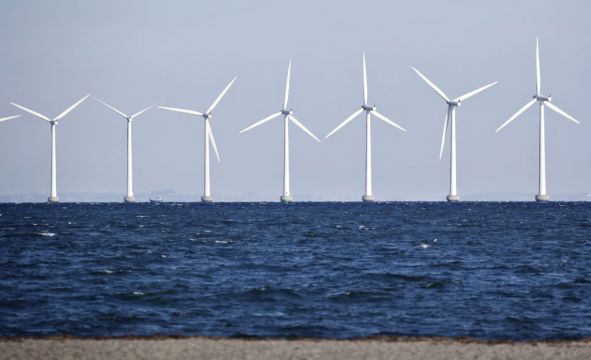The largest business network in the country, Chambers Ireland, has expressed “grave concern” about the Government’s draft offshore energy plan.
The group's director of policy and communication Shane Conneely told RTÉ radio's Morning Ireland that although they are “hugely supportive” of decarbonisation targets, their members are very concerned about long-term security of supply.
“[Our members] want to tackle climate change, and they can see what the economic opportunity is for the regions, for the coastal areas, for the rest of us living in Dublin where our electricity would be cheaper if we had this type of supply, but also for the industry that is there - there is an opportunity.”
However, describing the plan as “conservative” and “retrograde is some ways”, Mr Conneely noted: “There are areas in the first plan that are not included in the second plan. So the businesses that have been out there investigating where to place these wind farms have been wasting their time and energy over the last decade or so.”
He added: “Similarly, it is not technologically neutral. There are limits to how deep they can place fixed turbines of 60 metres. Whereas in Scotland, there is planning permission going through at the moment for 68 metres. So the officials are asking us to trust this plan, but we are very concerned about what the basis of this trust is.”
Mr Conneely said that there is a culture of risk adversity in Ireland, adding that he believes the plan does not show enough ambition.
“What we are asking them to do is treat an emergency like an emergency. It's also an opportunity.
“We need to see greater resourcing and technically competent people placed in charge of making planning decisions. We shouldn’t be fearing judicial reviews.”
He said there is a “huge regulatory risk” for businesses approaching Ireland in this regard, adding: “Unfortunately the officials don’t seem to recognise the fact that we are losing these opportunities.”
Plan
Mr Conneely said the approach taken by the department in this Offshore Renewable Energy Development Plan II is likely to act as a further bottleneck in the process of activating our offshore renewable energy resources.
“We have grave concerns that this draft plan is not flexible enough to account for the dynamic technology environment which it is attempting to regulate.”
He said the State has probably missed the next decade of development due to lack of port infrastructure.
“Largely, a lot of the benefits for the construction will go towards Wales and Scotland at the moment, because they have the capacity to deal with the Irish market. So we should be planning now for needs to get done. We need to see the ports expanded.
“We don’t have a culture of a quick and effective planning system in Ireland. We want to see a technically competent plan put in place there to ensure that the decisions are made can survive scrutiny. We are going to see an awful lot of cases gummed up in the courts if we are not careful,” he warned.
However, Mr Conneely said the best way to avoid such a situation is to invest in the courts, “to ensure there is a planning court system which is able to hear these cases quickly, so they can be listened to, reviewed and decided upon”.
He added Chambers Ireland want to see the ambition that is being demonstrated politically being converted in to action.
“We all know what we need to do on the decarbonisation, but what we need to see is these projects actually happening. At the moment, the Government is introducing u-turns, which is really undermining trust.
“If people are going to commit billions of euro to ensure that we can get these things in the water in Ireland, they need to ensure that the consensus that is built up is not undermined,” Mr Conneely said.
“I think the entire plan as they have it needs to return to the earlier version. We shouldn’t be 10 years in to a process and going backwards when we need to move forward,” he said.







